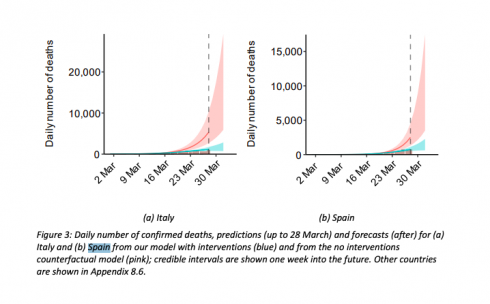IMPERIAL College London has published a report estimating that lockdown measures in Spain have saved the lives of 16,000 people.
The study looked at 11 European countries with the most cases of coronavirus patients as of March 28, to identify a nation’s ‘reproduction number’ in pandemic modelling.
Spain introduced some of Europe’s harshest measures to control Covid-19 infections, which researchers believe saved between 5,400-35,000 lives – a median of 16,000.
“It is a difficult time for Europe, but governments have taken significant steps to ensure that health systems are not overwhelmed. There is strong evidence that they have started to work and have flattened the curve. We believe a large number of lives have been saved,” said lead author, Samir Bhatt.
The study estimated that, among the 11 countries analysed, between 21,000-120,000 were saved by March 31.

The authors said many more deaths will be avoided if interventions are maintained until transmission drops to low levels.
“Our results, largely driven by countries with advanced epidemics and larger numbers of deaths (e.g. Italy, Spain), suggest that these interventions have together had a substantial impact on transmission, as measured by changes in the estimated reproduction number,” they wrote.
The paper added estimates that 15% of Spain’s population is infected with coronavirus – the highest in the 11 European countries studied.
This is based on the country’s high infection rate and that not everyone will present serious symptoms of Covid-19.
Click here to read more Spain News from The Olive Press.








